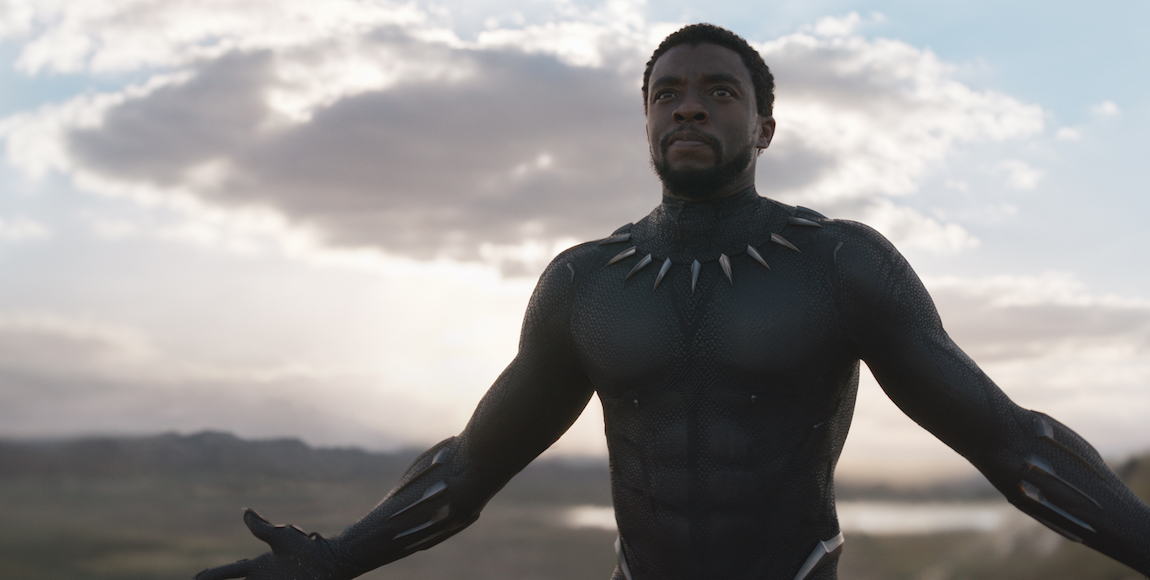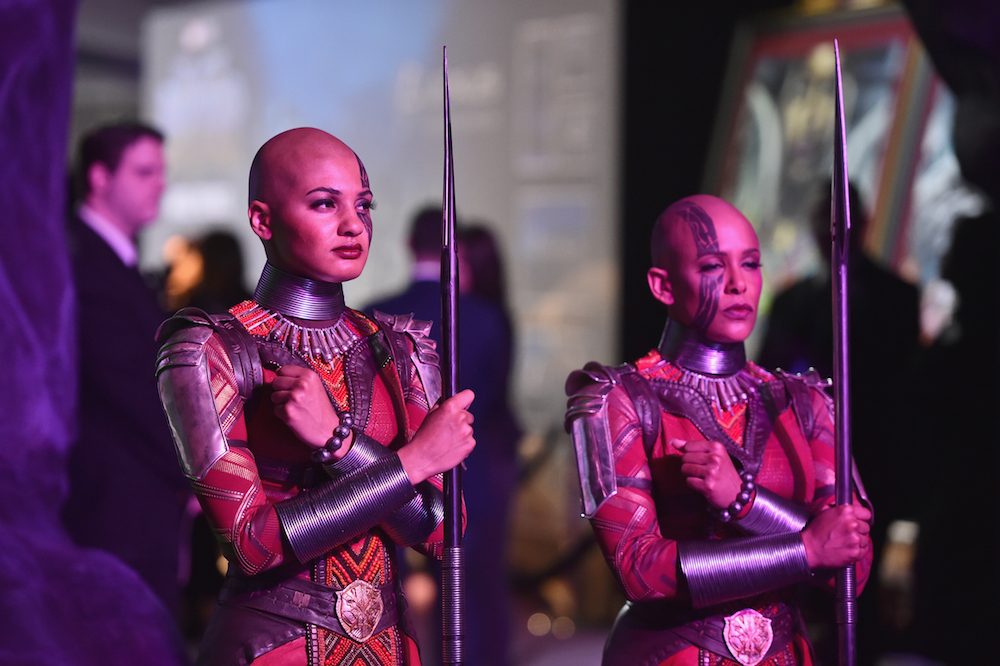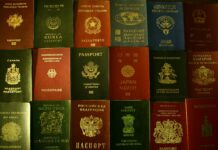
Marvel’s Black Panther is more than just a superhero movie. It is groundbreaking in every aspect, delving topics untouched in mainstream cinema – let alone a superhero blockbuster. As critics have noted, the movie defies genres and pulls together something altogether new – it’s current rating of 100% on Rotten Tomatoes is no accident. One of the most thrilling features of the film is how it seamlessly wove together and normalised decolonial themes. The Daily Vox explores some of the most stand-out aspects of Black Panther’s treatment of decolonisation and post-colonial discussion.
Afrocentrism
Black Panther focuses on the politics and drama of the fictional African nation of Wakanda. While some have criticised the movie for not actually being shot in Africa, cinematically this wasn’t apparent as you were thrown into a world that’s unmistakably African. The film is peppered with cultural references that some in the international audience might miss, but from Winston Duke’s Nigerian accent, to Babes Wodumo’s ‘Wololo’ playing in Wakanda’s halls, the movie pays homage to contemporary Africa in ways Hollywood has not done.
South Africans in particular will be treated to lines of dialogue in isiXhosa, Wakanda’s official language thanks to John Kani who plays King T’Chaka. And although there were some awkward accents afoot – Michael B. Jordan’s attempts drew sniggers from our audience – the use of vernac immersed you in the possibility that Wakanda could be real. Some casual shout outs to “Joburg†are even made.
Aesthetically the wardrobe developed by costume director Ruth Carter shouted afrofuturism yet still seemed familiar. This is because Carter drew from cultures across the African continent to create the traditional attire for the various African kingdoms in and around Wakanda. She was inspired by the Ndebele, Xhosa, Zulu, Maasai, Tuareg, Turkana, Suri, Dogon and Dinka peoples in particular, as well as Winnie Mandela’s isicholo
The creators clearly did their homework and it shows. The movie celebrates Africa and as said elsewhere, Black Panther will feel like home for many – though admittedly there were some “Lion King†moments which were a bit cringe.
African feminism
Although T’Challa is the king of Wakanda, there’s little room for doubt in the movie that women essentially run the kingdom. One of the things the movie does fantastically is portraying women in diverse, yet independently powerful, roles. As Angela Basset, Wakanda’s Queen Ramonda in the movie, points out:
“I think in this story it highlights the queen, the warrior, the general, the young sister, so I was so proud to have my daughter and my son there last night [at the premiere], because in their faces and in their spirit they were feeling themselves and they stood taller after last night,†said Basset.
Whether Queen Ramonda; Okoye, played by Danai Gurira, who leads the Dora Milaje, (Wakanda’s elite band of women warriors); Nakia, played by Lupita Nyong’o, a Wakandan spy; or Shuri, played by Letitia Wright, T’Challa’s sister and the genius responsible for developing Wakanda’s advanced technology – the women of Wakanda are fully-realised leaders slaying in every aspect of society. But perhaps the most profound aspect of how the movie dealt with all this was how effortless these characters were weaved into their roles. There was nothing contrived or forced about the feminism in the film, the movie’s message was a lot more radical than that: in Wakanda, narrow gender roles were not a thing – iconic women are simply a norm.
Wright’s character, Shuri, in particular stole every scene she was in throughout the movie. And she delivered lines that will have audiences reeling with laughter and shouting in triumph in almost every scene – though you may notice white folk in the audience squirm uncomfortably at times.

Western Imperialism
Andy Serkis’ Ulysses Klaue, one of the antagonists, is an archetype of Western colonialism. Klaw’s livelihood is stealing and appropriating Wakanda’s natural deposits of Vibranium to sell to foreign capitalist markets – a clear nod to colonial plundering and extraction of Africa’s natural resources. Perhaps unironically, Serkis’ character also has a thick Afrikaans accent – something that will certainly raise eyebrows.
Wakandans go to great ends to hide their technologically advanced civilisation from the world because of people like Klaw. As they see it, t Western world is obsessed with individual profit, militant expansion and erasing cultures which don’t fit their worldview. One of the primary tensions between the T’Challa and Michael B. Jordan’s Killmonger is how the latter’s violent ideology was learnt from his exposure to the West.
One of the lighter ways the movie subverts elements of white supremacy is through gritty humour. One of the ongoing jokes in the movie is how unserious Wakandans take white people – going as far as silencing a white character when they speak out of turn or laughing at Western politicians who undermine Africa and its capabilities. The creators only casts two white central characters in the film: one as a villain and the other who is basically comedy relief – you know, the token roles usually reserved for black people in many Hollywood blockbusters? The reversal is masterful.
The African diaspora and what it means to be “Africanâ€
One of the most emotionally provocative narratives of the movie is the exploration of belonging and abandonment of the African diaspora – especially in the anti-black USA. This was arguably the primary theme of the entire storyline, and is the first time a blockbuster has explored such themes outside of series like Roots. If there’s anything in the movie that will inspire academics and public commentators writing op-eds, it’s likely this. Some of the scenes exploring this will leave you in tears as it delves into the psyche of alienation, resentment, suffering, rage and the search for home.
The “MLK vs Malcolm X†leadership dilemma
The ideological tension between T’Challa and the primary antagonist, Killmonger, is the driving force of the plotline. Without revealing too much, these characters have different visions of what it means to be a leader, what liberation looks like and how should Africa respond to the antagonistic West. At the heart of this tension are questions of how black people should respond to a global world that systematically exploits, undermines and kills them. The answer each character arrives at are different, but then, so are the contexts they came from. In understanding how each character arrived at their position – what their motives and influences are – Black Panther provides contemporary reflection eternal questions of ethical tactics, black rage, militancy, tyranny, privilege and being accountable to the suffering of others.
Featured Image supplied








